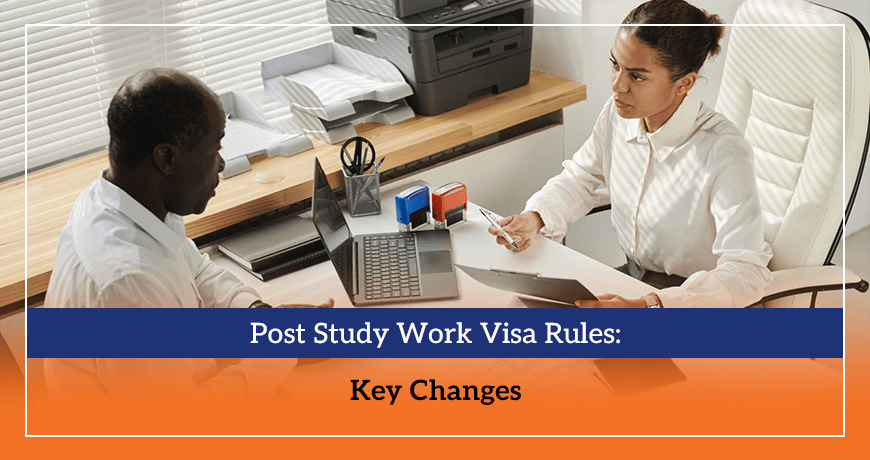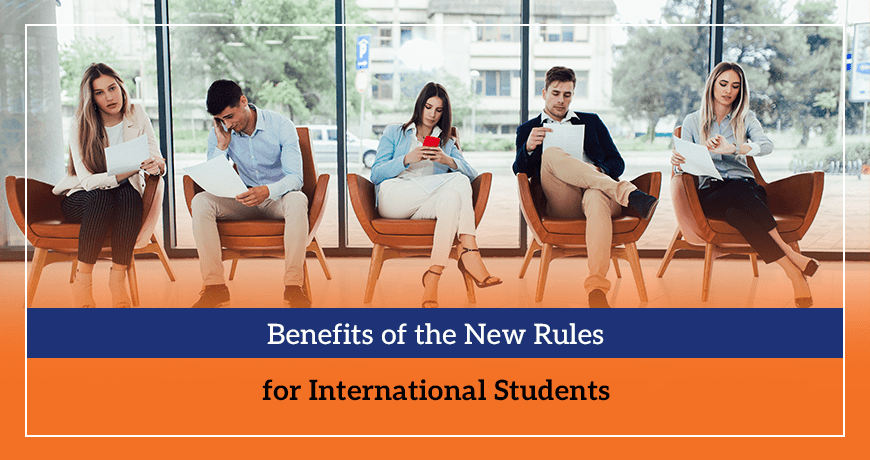What changes in 2026 can shape your right to stay and work after graduation in New Zealand? The New Zealand Post Study Work Visa New Rules link your Post Study Work Visa outcome to Immigration New Zealand rules on NZQF level, full-time study in New Zealand, and visa conditions for some non-degree qualifications. Immigration New Zealand and the New Zealand Qualifications Authority sit at the centre of this pathway.
Many graduates are trying to solve one practical problem: pick the right qualification path, apply on time, and avoid a work condition that blocks a job offer. This guide explains the current PSWV rules, the Postgraduate Diploma to Master’s update, visa length logic, cost and processing timing, and a clear application process. The examples focus on common pitfalls such as missing the student visa expiry window or assuming every qualification leads to open work rights.
What is the New Zealand Post Study Work Visa
The Post Study Work Visa is a New Zealand work visa for international graduates who completed an eligible qualification after studying in New Zealand as an international student and want to work after study. Immigration New Zealand states that the visa can let you stay and work in New Zealand for up to 3 years, based on your studies.
Immigration New Zealand sets different work conditions for different qualification types, including many postgraduate programmes you can take in New Zealand. A degree at level 7 or higher can allow work for any employer in any job. Non-degree level 7 or lower can come with work conditions tied to a job that meets Immigration New Zealand requirements and relates to what you studied.
Immigration New Zealand treats this visa as a one-time option for most people, so planning your first application matters.
Who can get this visa
Immigration New Zealand checks your qualification route, your NZQF level, your study time in New Zealand (including at New Zealand public universities), and your application timing after your student visa ends.
You may qualify through one of two routes:
- Degree route: you completed a degree-level 7 or above qualification, and you studied full-time for at least 30 weeks in New Zealand.
- Eligible list route: you completed a non-degree level 7 or below qualification, you studied full-time in New Zealand for the full required duration, and your qualification sits on the official list of qualifications eligible for a Post Study Work Visa.
A third group exists for some older student visa holders. Immigration New Zealand notes that people who applied for a student visa on or before 11 May 2022 may still qualify even if the qualification is not on the eligible list, with an acceptable qualification requirement.

Post Study Work Visa: New rules and recent updates that matter in 2026
Immigration New Zealand published an update that focuses on students who complete a Master’s degree after a Postgraduate Diploma and risk losing PSWV eligibility on the 30-week enrolment rule. The change aims to keep that pathway eligible in a defined scenario.
Postgraduate Diploma to Master’s pathway change
Immigration New Zealand states that students who studied a Postgraduate Diploma for 30 weeks and immediately progressed to a Master’s degree may apply for a Post Study Work Visa based on the Postgraduate Diploma, even if they were not enrolled in the Master’s for 30 weeks.
This matters for students whose Master’s enrolment period is short on paper, even though the overall postgraduate pathway is strong. It can remove an unexpected eligibility shock at the end ofthe study.
The 12-month application window in a specific pattern
Immigration New Zealand describes a 12-month application window tied to the end date of the student visa for the first qualification in a specific sequence of study. The details sit in the official change notice.
A practical takeaway is simple: the first qualification and the first student visa end date can control your application clock in this pathway, so your dates matter as much as your qualification title.
Eligible qualification list alignment for non-degree routes
Immigration New Zealand tied changes in the eligible qualification list to workforce needs, with examples that include teaching and an engineering diploma strand, so it helps to compare eligible diploma options in New Zealand before you commit. Teaching routes reference Teaching Council registration requirements. Engineering routes reference the New Zealand Diploma in Engineering strand for a mechanical engineering technician outcome.
For non-degree applicants, the eligible list is not background reading. It is the gate.

Eligibility criteria in 2026: qualification level, study time, work conditions, deadlines
Immigration New Zealand sets PSWV eligibility through NZQF level, study duration, application timing, and work conditions that differ by route. This section gives the clean criteria readers use to decide their next step.
Qualification level and visa rights
Degree level 7 or higher: Immigration New Zealand states you can work for any employer in any job.
Non-degree level 7 or lower: Immigration New Zealand states you must work for an employer in a job that meets Immigration New Zealand requirements, and you must intend to work in a job related to what you studied. Immigration New Zealand states that these conditions will be listed in the visa.
Study duration rules
Immigration New Zealand states that the visa length and eligibility depend on the level of your qualification and the time you spent studying in New Zealand. Degree level 7 or above routes reference the 30-week full-time study requirement in New Zealand.
For the Postgraduate Diploma to Master’s scenario described in the change notice, the Postgraduate Diploma can support eligibility when the Master’s enrolment does not reach 30 weeks, under the defined conditions.
Deadlines after your student visa ends
Immigration New Zealand states you must apply no later than 3, 6, or 12 months after your student visa expires, based on your situation. The PSWV page includes this timing rule as a core requirement.
Timing mistakes are common. Graduates often focus on graduation dates and ignore the student visa expiry date. Immigration New Zealand uses the visa expiry window for the rule, so your calendar should start there.
New Zealand Post Study Work Visa new rules: application guide for 2026
Immigration New Zealand sets out an online application path for the Post Study Work Visa. The best applications start with a clean eligibility check, then a tight document pack that matches the PSWV page requirements.
Step 1: Confirm the route you are using
Use one of these routes in your own notes before you open the online form:
- Degree route: degree level 7 or higher, full-time study for at least 30 weeks in New Zealand.
- Eligible list route: non-degree level 7 or lower, full-time study for the full required duration, qualification on the eligible list, job related to study.
This quick step reduces errors that come from mixing the rules across routes.
Step 2: Prepare the documents Immigration New Zealand expects
Immigration New Zealand lists proof that you completed the qualification as a key requirement. The PSWV page outlines the document expectations for the application. Keep your completion letter or transcript ready in a single folder, plus your passport details and any supporting evidence Immigration New Zealand may request during processing.
Step 3: Budget for cost and plan for processing
Immigration New Zealand lists the PSWV cost from NZD 1670. Immigration New Zealand lists processing time guidance on the PSWV page. Use that guidance to plan job start dates, family visa timing, and health cover for international students in New Zealand.
Step 4: Know the one-time nature of PSWV
Immigration New Zealand states you can only have the Post Study Work Visa once. This makes your first choice of qualification pathway and timing a high-value decision.
2026 reality check: PSWV rules vs common assumptions
|
Topic
|
Common assumption
|
What Immigration New Zealand states
|
|
Visa length
|
Everyone gets 3 years
|
Up to 3 years, based on your study
|
|
Work conditions
|
Any job for everyone
|
Degree level 7 or higher can work for any employer in any job. Non-degree level 7 or lower must work in a job that meets requirements and relates to the study
|
|
Eligible list
|
Any diploma works
|
Non-degree level 7 or lower must be on the eligible list, with full-time study for the required duration
|
|
Deadlines
|
Always 3 months
|
Must apply no later than 3, 6, or 12 months after the student visa expiry
|

Benefits of the updated rules for international students
Immigration New Zealand’s Postgraduate Diploma to Master’s update can protect a common postgraduate pathway from a timing trap. Students who studied a Postgraduate Diploma for 30 weeks and moved straight into a Master’s degree may still have a PSWV route even when Master’s enrolment does not reach 30 weeks.
The eligible qualification list updates can help non-degree applicants in targeted areas such as teaching and mechanical engineering technician pathways, especially if you pick courses that align with residency pathways. Teaching routes link to Teaching Council requirements. Engineering routes reference a specific New Zealand Diploma in Engineering strand. These details add clarity for students who want a qualification that maps to a defined job outcome under PSWV rules.
Frequently asked questions
What happens if my job is not related to my field of study?
Immigration New Zealand states that non degree level 7 or lower PSWV holders must intend to work in a job related to what they studied and in a role that meets Immigration New Zealand requirements. A mismatch can put you at risk of breaching visa conditions.
Can I extend a Post Study Work Visa?
Immigration New Zealand states you can only have the Post Study Work Visa once. A new visa type is needed after it ends.
Can my partner and children join me?
Immigration New Zealand states PSWV holders can support visas for a partner and dependent children. Immigration New Zealand states that the partner can apply for a work visa, and children can apply for student visas to study as domestic students in New Zealand.
I completed a Postgraduate Diploma, then a Master’s with under 30 weeks of enrolment. Do I still qualify?
Immigration New Zealand states you may apply for PSWV based on the Postgraduate Diploma in the defined pathway described in the change notice. Review the official change notice and match your dates to the scenario described there.
Tips for maximising your Post Study Work Visa outcome
Start with dates. Your student visa expiry date controls the PSWV deadline windows listed by Immigration New Zealand, so place that date in your calendar first.
Pick a route that fits your job plan, and think ahead about where to live while you job-hunt in New Zealand. Degree level 7 or higher gives open work rights under Immigration New Zealand rules. Non-degree level 7 or lower ties work rights to a job related to your study and a qualification on the eligible list, so your job search should follow that constraint from day one.
If you are on the Postgraduate Diploma to Master’s path, track your enrolment weeks and keep evidence of the Postgraduate Diploma study duration. The change notice is very specific about the pathway pattern, and your documents need to match it.
Conclusion
Immigration New Zealand sets Post Study Work Visa outcomes through NZQF level, full-time study time in New Zealand, an eligible qualification list rules for non-degree routes, and clear application timing tied to student visa expiry.
A good plan uses the official PSWV page, the eligible qualification list, and the Postgraduate Diploma to Master’s change notice as the main reference set, then maps your dates and job plan to the route you qualify for and keeps an eye on pathways to permanent residency after graduation.
Many graduates lose momentum from one avoidable mistake: applying late or taking a job that conflicts with PSWV conditions for non-degree qualifications. Keep your completion proof ready, track your deadline, and apply with confidence under the New Zealand Post Study Work Visa New Rules.